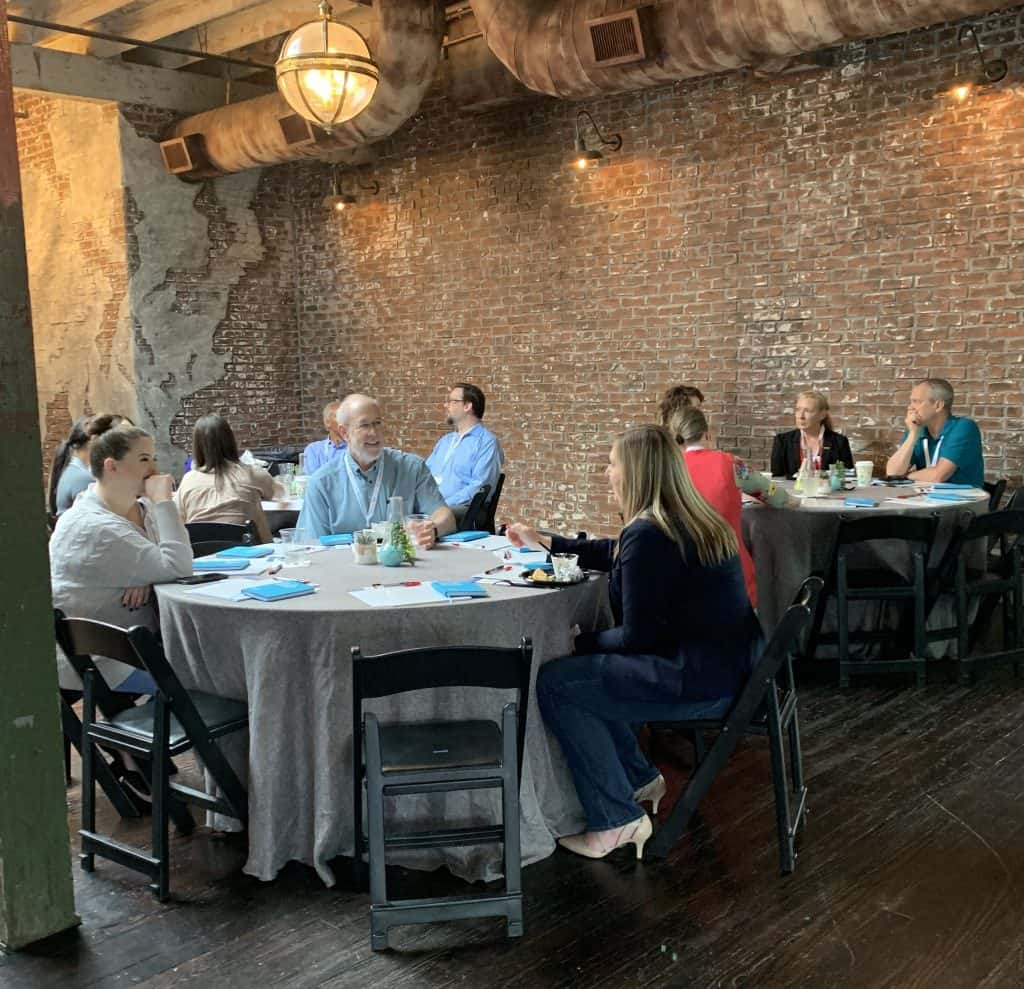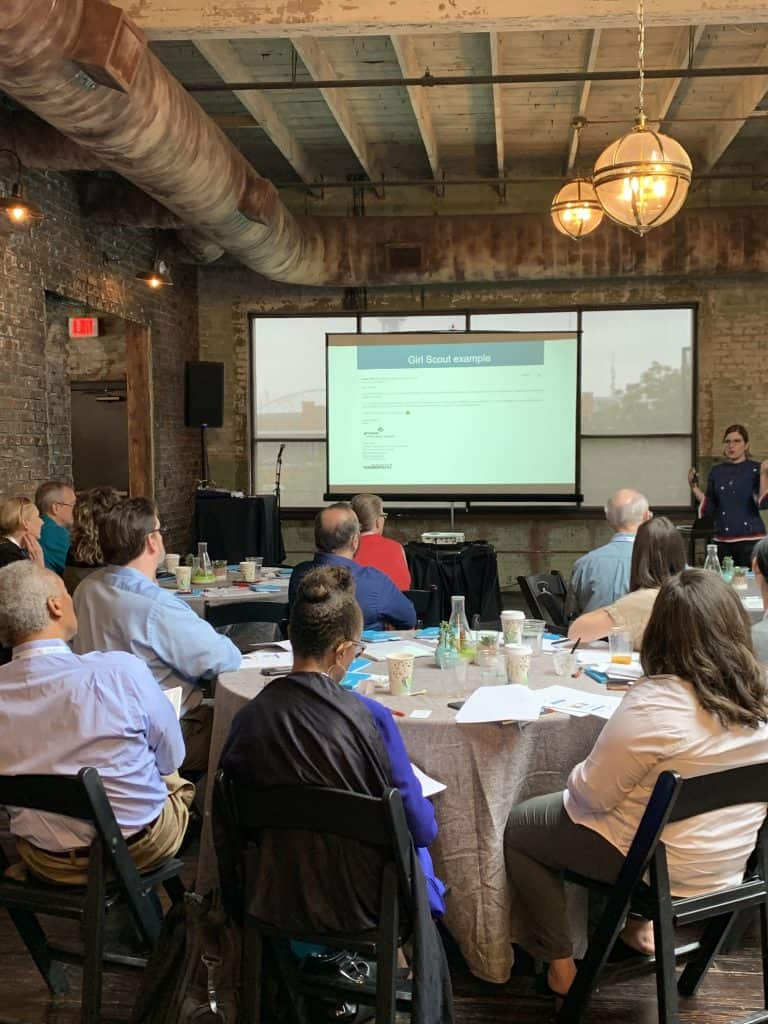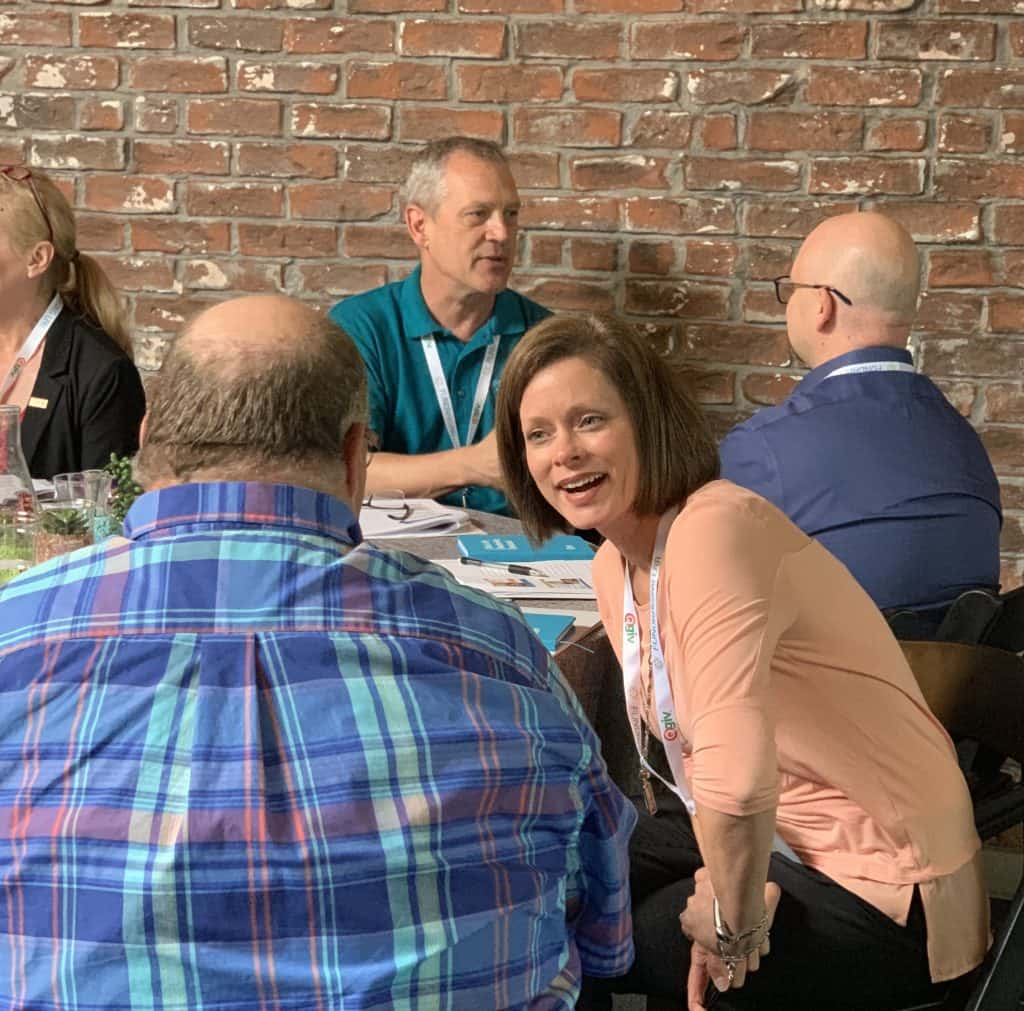Thanks so much to all of our clients who joined us at the Dallas Fundraising Lab on May 7th!
Attendees networked with other local nonprofits, enjoyed Rachel Muir’s presentation of “How to Win Your Donors’ Hearts, Minds, and Wallets,” saw how other clients are using Qgiv’s features and driving success, and learned how to write a better appeal letter.
The purpose of the Fundraising Lab is to host events that give local organizations the opportunity to connect with each other and benefit from the expertise of industry pros. The events also give nonprofits the chance to talk with staff about all things Qgiv!

How to win your donors’ hearts, minds, and wallets
Rachel Muir, CFRE, took us through charm school and shared tips on donor discovery and how to strengthen the relationships you have with your current donors. An important step when connecting with a new donor is to find out as much as you can about them before you pay them a visit. This can help reveal interesting conversation points to bring up, or you might find a mutual connection.
5 Killer Discovery Questions to remember:
- Tell me about your life.
- What do you love about what you do?
- What is the best gift you ever made and why?
- How do you like to be invited to make a gift?
- What do you hope to achieve with your philanthropy?
These questions are good indicators to see what the person is passionate about and is a good opportunity to deepen the relationship. Rachel also shared 3 main points on what great fundraisers do differently. Here are some tips, and takeaways for each:
- They focus on the greatest profit
- Major gift fundraising boosts the highest ROI
- “Shop in your own closet” – meaning start with the donors you already know when searching for donations and gifts.
- Set a revenue goal and plan for each donor in a portfolio
- This will help you know how much you are planning to raise this year and where it is coming from.
- Upgrade your donors – Amount to upgrade is based on their appetite and interest.
- When deepening a donor relationship, you need to make what you need to fund equal to the donor’s greatest fundraising interest.
- They have stewardship business rules
- Celebrate the anniversary of your donor’s first gift!
- Make sure to let your first-time donors know that their gift mattered! Give them a shout-out in their thank you email.
- When sending an email, make sure to include descriptive and emotional details. Donors need to be on that emotional journey to care and understand.
- Tell them what their money did – NOT what you did with their money. Donors don’t give to us – they give through us. You want them to them to feel like a hero, not the middleman.
- Make sure to be updating your email responders. Donors don’t want to be getting the same message over and over.
- Use personal video messages in your emails!
- Engaging, affordable, and unforgettable
- Great way to get your foot in the door

How to build a better appeal
Sarah Sebastian, Director of Brand Communications at Qgiv, went step-by-step on how to craft a better appeal letter, from what people look at first in the letter to how to catch people’s attention with the envelope!
How donors skim an appeal
- Pictures
- Salutation
- Johnson Box & Post Script
- Signature
- Body of the letter
- Pictures
- Choose powerful images
- People are going to feel more connected to a picture of a person or animal looking happy and healthy than sad or sick
- Salutation
- Don’t “Dear Friend” your donors
- Try to use a salutation that matches the person’s interest if you don’t have their name. For example, use something like “Dear Animal Justice Warrior.”
- Johnson Box & Post Script
- 79-90% of readers look here first!
- Great place to make an ask
- Signature
- Use someone besides the CEO to sign, like a volunteer or board member. If it is the CEO’s signature, try to include a personal note.
- Be creative with the signature! For example, if your appeal is for an animal shelter, have the signature be from an adoptable pet
- Body of the Appeal
- Make it easy to scan
- Make sure that it’s donor-centered. It should contain more “You” language than org-centered language.
- Read the letter out loud! This is a good way to ensure it flows and makes sense.




